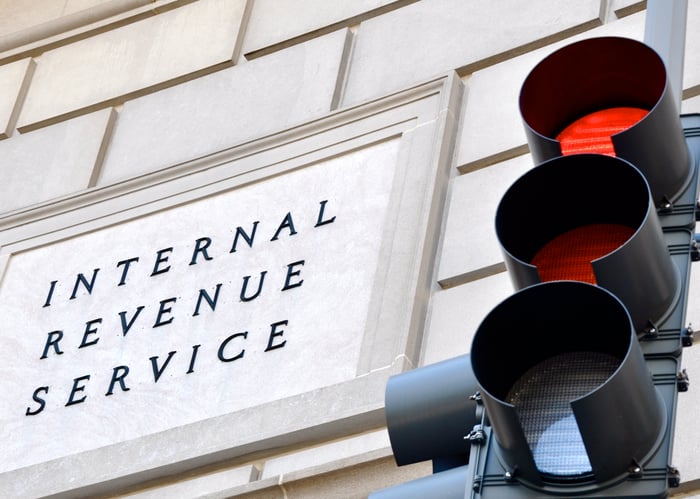Here Are the States That Won't Tax Your Social Security, 401(k), IRA, or Pension Income
Key Points
Seven states offer exemptions for various forms of retirement income.
Nine states don't have any state income tax, which also applies to retirement income.
Remember that Federal tax rules apply to Social Security regardless of your state's rules.
- The $23,760 Social Security bonus most retirees completely overlook ›
People (ideally) spend decades preparing for retirement, whether it's paying into the Social Security system, stashing money and investing in various retirement accounts, or earning a pension. It may sometimes seem like a tedious task, but it's well worth the effort when the fruits of your labor pay off when you enter your golden years with a nice nest egg.
There's no doubt that being financially prepared for retirement is one of the surest ways to avoid stress in those years. However, just like in your working years, the chances are still high of you having to deal with the IRS. Federal tax rules will continue to apply to everyone, but luckily, some retirees in certain states may be exempt from many of these taxes.
Where to invest $1,000 right now? Our analyst team just revealed what they believe are the 10 best stocks to buy right now, when you join Stock Advisor. See the stocks »

Image source: Getty Images.
States that don't tax retirement income in some form
The following states do not tax some forms of retirement income, including Social Security, 401(k)/IRA withdrawals, and pensions. Some states exempt all, while others exempt a portion:
- Arkansas: Up to $6,000 is exempt annually from IRA distributions (as long as you're 59 1/2 years old) and pension plans.
- Illinois: All retirement income is exempt, including Social Security, retirement account withdrawals, and pensions.
- Iowa: Social Security benefits are exempt. After age 55, distributions from retirement accounts and pensions are also exempt.
- Mississippi: All retirement income is exempt, including Social Security, retirement account withdrawals, and pensions. Early withdrawals are not exempt from state taxes.
- New Hampshire: Social Security benefits and pension income are exempt. Interest or dividends paid through a retirement account (like a traditional IRA) are not exempt, but that's being phased out this year.
- Pennsylvania: All retirement income is exempt, including Social Security, retirement account withdrawals, and pensions.
- South Carolina: Social Security benefits are exempt. For retirement accounts and pensions, up to a certain amount is tax-deductible. If you're younger than 65, up to $3,000 of retirement income is deductible; if you're 65 and older, up to $10,000 is tax-deductible.
States with no income tax
In most cases, the distributions you receive from Social Security and retirement accounts are taxed like your regular income. That means living in a state with no income taxes also means not having to pay taxes on these withdrawals. As it stands, nine states do not have state income taxes:
- Alaska
- Florida
- Nevada
- New Hampshire
- South Dakota
- Tennessee
- Texas
- Washington
- Wyoming
How Social Security taxes work
There are currently 41 states and Washington, D.C. that do not tax Social Security benefits. The remaining nine states that do are: Colorado, Connecticut, Minnesota, Montana, New Mexico, Rhode Island, Utah, Vermont, and West Virginia (until 2026, when it'll be completely phased out).
That said, regardless of whether your state taxes Social Security benefits, you could be subjected to federal taxes on your benefits. To determine if, and how much, of your Social Security benefits are subject to federal taxes, the IRS considers your combined income.
Your combined income includes your adjusted gross income (AGI), half of your annual Social Security benefit, and any nontaxable interest you receive (like Treasury bonds). For example, if your AGI is $20,000, you receive $20,000 annually from Social Security, and you have $500 in nontaxable interest, your combined income would be $30,500 ($20,000 + $10,000 + $500).
| Percentage of Taxable Benefits Added to Income | Filing Single | Married, Filing Jointly |
|---|---|---|
| 0% | Less than $25,000 | Less than $32,000 |
| Up to 50% | $25,000 to $34,000 | $32,000 to $44,000 |
| Up to 85% | More than $34,000 | More than $44,000 |
Source: IRS.
The amount of your Social Security benefits that are eligible to be taxed is added to your regular income and then taxed at your normal income tax rate.
The $23,760 Social Security bonus most retirees completely overlook
If you're like most Americans, you're a few years (or more) behind on your retirement savings. But a handful of little-known "Social Security secrets" could help ensure a boost in your retirement income.
One easy trick could pay you as much as $23,760 more... each year! Once you learn how to maximize your Social Security benefits, we think you could retire confidently with the peace of mind we're all after. Join Stock Advisor to learn more about these strategies.
View the "Social Security secrets" »
The Motley Fool has a disclosure policy.



